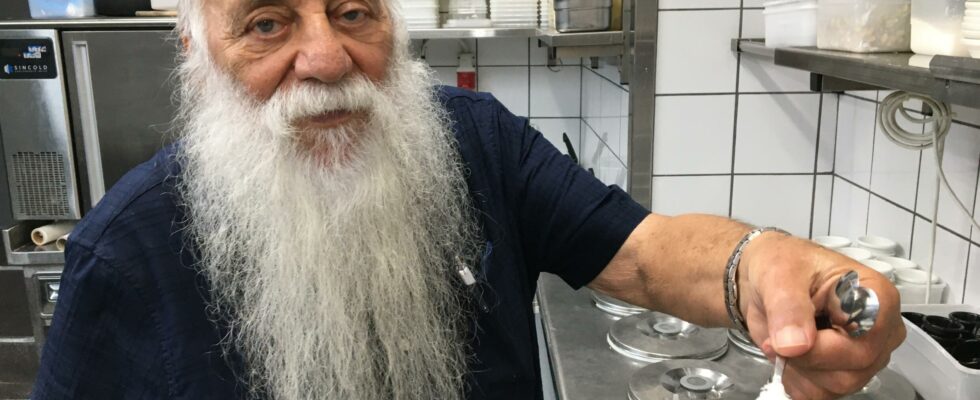Saint-Jean d’Acre or Akko is a mixed city which, like all of northern Israel, has been targeted for a year, and again on Saturday morning, September 28, by numerous rocket attacks from Lebanese Hezbollah, with no casualties to report. . In this region, friends advocate living together, one being an Israeli Jew, the other a Palestinian, Muslim and Israeli citizen. If the current escalation calls into question neither their friendship nor their convictions, it highlights certain disagreements, symbols of the new degree of complication of an increasingly inextricable situation.
3 mins
From our special envoy to Akko-Saint-Jean d’Acre,
Uri Jeremias is a restaurateur known throughout the city, and not just for his fish. His long patriarchal beard is regularly called upon to calm things down during peaks of tension. But because he fights radicals from all camps – Israeli settlers, Hamas or Hezbollah – he judges the latest ceasefire proposal unthinkable.
“ If someone starts a war against you, then you have to react. Hamas and Hezbollah attacked Israel. If we took a break now, they would rearm again, and they would start again! A ceasefire must mean a solution, an agreement that can allow us to bring back those evacuated from the North, to return home. There is no need for a ceasefire now », he notes.
An old friendship
When Uri Jeremias passes in front of Mahmoud Shami’s shop, in the souk, the two men hug. They hold the same discourse on cohabitation, a historical reality, and on living together, a necessary perspective. But not on the ceasefire.
“ The problem is not the Lebanon. The problem is when Israel tells others to leave, when Israel says “I want to go to the Litani (Lebanese river, Editor’s note), I want Gaza, I want the West Bank…” That’s the problem: when people demand that it be theirs, and they want to chase away those who are there. As long as it is like this, there will be war “, he laments.
The friendship of Uri Jeremias and Mahmoud Shami is old and solid. She won’t stop there. Neither does the regional conflict.
Also readIsrael: Shlomi, ghost town on the border with Lebanon
